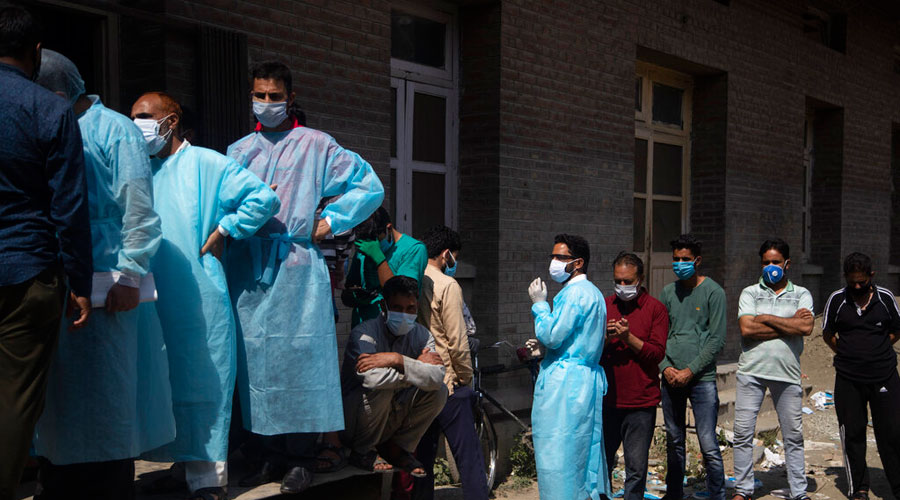Six former bureaucrats have petitioned the Supreme Court seeking a judicial probe into the Centre’s alleged mismanagement of the Covid-19 crisis that they say has caused a massive loss of lives and jobs and compromised citizens’ fundamental rights.
They have demanded a commission of inquiry headed by a former apex court judge, with its members including experts from the fields of public health, epidemiology, medical science, law and the social sciences.
“The nationwide lockdown that was announced by the Hon’ble Prime Minister on 24.03.2020 with merely four hours’ notice was arbitrary, irrational and without due consultation with experts or state governments,” the petition, filed through advocate Prashant Bhushan, says.
“In spite of being the harshest and most restrictive lockdown in the world, it has failed to arrest the spread of the disease.... India is now the fourth worst-affected country.”
The petition argues that the government’s response to the pandemic and its “deleterious impact on the lives and livelihoods of citizens is a definite matter of public importance and warrants the appointment of a commission (of inquiry)”.
The joint petition moved by K.P. Fabian, M.G. Devasahayam, Meena Gupta, Somasundar Burra, Amit Bhaduri and Madhu Bhaduri is to be heard on Friday by the bench of Justices L. Nageshwar Rao, Hemant Gupta and Ravindra Bhat.
It says the Centre’s handling of the pandemic has “led to a severe infraction of the fundamental rights of people” and seeks accountability from the government for these alleged lapses:
- Failure to take timely and effective measures to contain the transmission of the disease even after being notified about it by the World Health Organisation in early January.
- Failure to adhere to its statutory obligations under the Disaster Management Act, 2005, including the constitution of and consultation with advisory committees of experts under Section 7, the preparation of a National Plan under Section 11, and the issuance of guidelines to provide relief to the most vulnerable under Section 12.
- Failure to consult the National Task Force — appointed by the government on March 18 and made up of experts in epidemiology and public health — before imposing the nationwide lockdown and subsequently extending it.
- Failure to make timely and targeted provisions for the inevitable impacts of the lockdown, such as job loss, starvation and the exodus of migrant workers from cities to villages.
- Delay and lethargy in ensuring adequate supplies of personal protective equipment (PPE) for the safety of healthcare workers.
The petition highlights these specific points:
Screening delay
The government “failed to nip the problem in the bud by conducting effective screening and surveillance of international passengers coming into India as well as carrying out a public awareness campaign from January itself when India had very few cases of Covid-19”, the petition says.
Jobs, migrants
“Nearly six crore people between the ages of 20 and 39 lost their jobs in April itself and the livelihoods of 40 million migrant workers have been abruptly disrupted,” the petition says.
“In the absence of adequate food and shelter provisions being provided by the respondent (government), these migrant workers have been left to fend for themselves, with many walking thousands of kilometres to return to their hometowns/villages.”
The petition alleges that because of the lack of “advance planning or social security measures by the respondent, the lockdown has deprived these migrant workers, daily wage earners and other vulnerable people of their right to livelihood, which has been held to be a part of (the) right to life under Article 21 of the Constitution”.
Healthcare workers
“Finally, the right to life of healthcare workers, including doctors, nurses and other medical staff, has been compromised owing to the respondent’s inexplicable delay in scaling up the procurement of PPE,” the petition says.
Gatherings
The petitioners have accused the Centre of ignoring the guidelines issued by the National Disaster Management Authority on February 4, which suggested that large gatherings be avoided.
They have alleged that numerous large political gatherings took place after these guidelines were issued, including the government-sponsored event in Gujarat to welcome US President Donald Trump on February 24.











